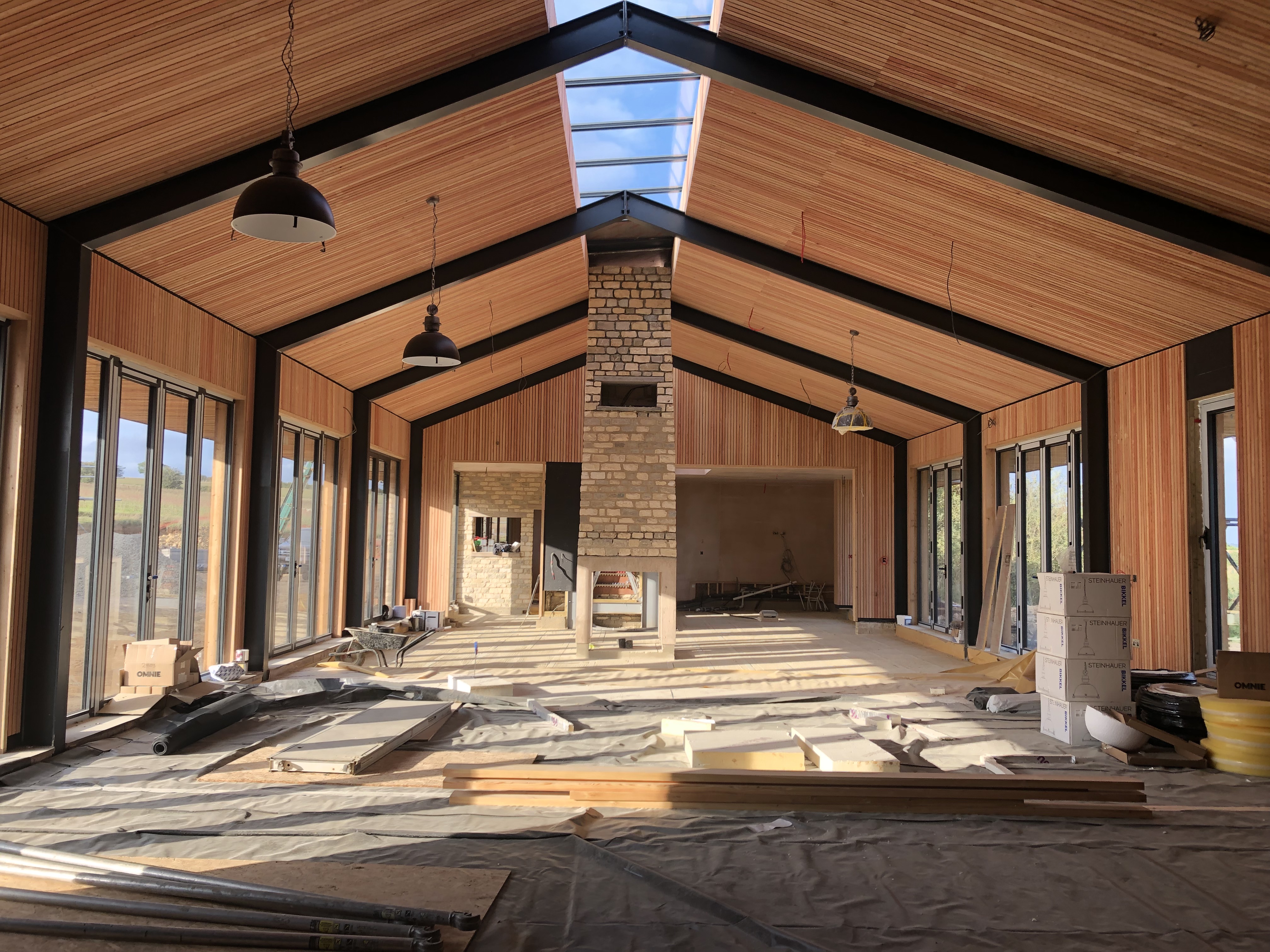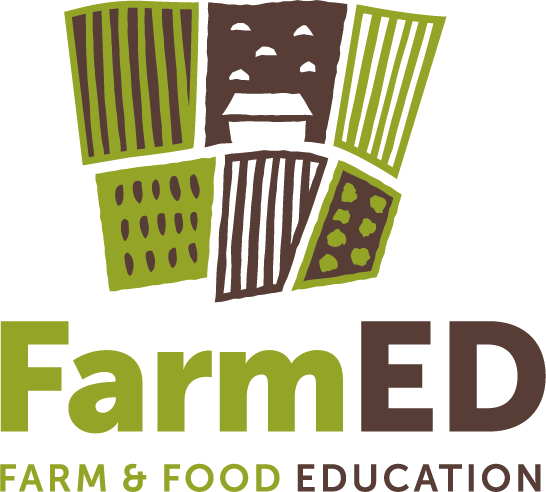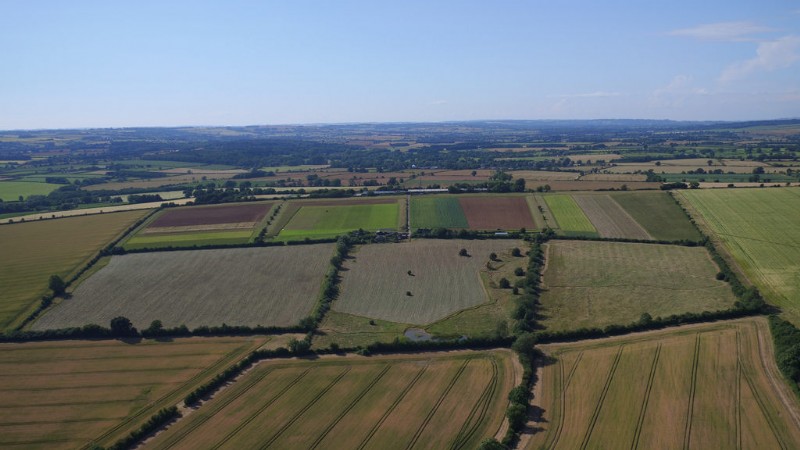
The development of the new buildings at Honeydale Farm is now well underway and FarmED - it’s new name - will be an exciting new centre for Farming and Food Education. The centre is dedicated to developing a new food culture centered around regenerative farming and new routes to market.
With all the current changes in farming and in the way people are choosing to eat, FarmED will support new entrants and growers, offering locally-sourced, sustainable produce and providing a unique and inspirational place to share knowledge and debate this fundamental link between good food and good farming.
FarmED will feature a lecture space and kitchen surrounded by a real farm with livestock, kitchen garden, orchard, apiary, crop rotation and trial plots, plus natural flood management and wildlife habitats.
While the construction has been going on in one area of the farm, there’s been lots happening on the 107 acres that surround the centre. We’ve been working with various organisations and researchers on a series of ongoing crop trials and experiments.
Diverse Forages Project (SARIC)
We are glad to be one of twelve satellite farms involved in the Diverse Forages Project, experimenting with a range of forage mixtures with different levels of diversity, to determine which provides the best forage and range of benefits for the soil, environment and livestock.
This is a joint initiative spearheaded by Reading University, Rothamsted Research (North Wyck) and Duchy College Cornwall. Data is being collected from the monoculture, six, twelve and seventeen species mixtures which will be compared to fertilised perennial ryegrass (Control) at the multiple sites over a five year period (2016-20).
The first 2 years focused on establishment, grazing management and species composition, and in the third year (2018), more detailed work was carried out. This focussed on how the properties of the different forages affected livestock at Reading University Farm. Data on Angus steers was assessed during grazing over spring, summer and autumn. Analysis will continue over winter 2019, when they are being fed conserved haylage from the three mixtures as well as the ryegrass control.
Drought Tolerance
During the droughts of 2018 it was interesting to monitor the performance of two drought tolerant legumes - sainfoin and lucerne. Usefully planted side by side in the same field in 2015, we noticed that while the sainfoin provided one big high quality hay cut in June, the lucerne has shown extremely good regrowth characteristics after cutting. Further findings on the differences between lucerne and sainfoin to follow.
Worm Burden Research
Researcher Nicola Noble, working in conjunction with the Organic Research Centre and National Sheep Association, has been conducting an experiment at Honeydale this year, comparing the worm burdens of ewe lambs fed on diverse multi-species swards and permanent pasture. We provided one sward sown with a herbal ley, including antiparasitic plants like sainfoin, chicory, and birdsfoot trefoil and a long term permanent pasture sward. The experiment finished in the Autumn and we are awaiting the results.
FarmED is due to open later this year and also available to hire for talks and events.
Follow us on social media and subscribe to the newsletter to keep up to date with all the news.




